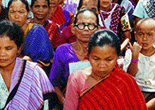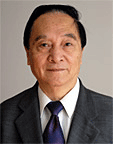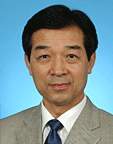BRAC
 BRAC started a TB-control programme as a pilot community-based project in 1984 in one sub-district and expanded its activities to 283 sub-districts in 42 districts. BRAC has contributed to TB control in Bangladesh by involving communities and increasing access to diagnostic and treatment.
BRAC started a TB-control programme as a pilot community-based project in 1984 in one sub-district and expanded its activities to 283 sub-districts in 42 districts. BRAC has contributed to TB control in Bangladesh by involving communities and increasing access to diagnostic and treatment.
With a vision of "a just, enlightened, healthy and democratic Bangladesh free from hunger, poverty, environmental degradation and all forms of exploitation based on age, sex, religion and ethnicity," BRAC started as an almost entirely donor funded, small-scale relief and rehabilitation project to help the country overcome the devastation and trauma of the Liberation War. Today, BRAC has emerged as an independent, virtually self-financed paradigm in sustainable human development. It is the largest in the world employing 97,192 people, with the twin objectives of poverty alleviation and empowerment of the poor. Through experiential learning, BRAC today provides and protects livelihoods of around 100 million people in Bangladesh. Diagnosing poverty in human terms and recognizing its multidimensional nature, BRAC approaches poverty alleviation with a holistic approach. BRAC's outreach covers all 64 districts of the country and furthermore, has been called upon to assist a number of countries including Afghanistan and Sri Lanka.
From the time of its modest inception in 1972, BRAC recognized women as the primary caregivers who would ensure the education of their children and the subsequent inter-generational sustainability of their families and households. Its comprehensive approach combines Microfinance under BRAC's Economic Development programme with Health, Education and other Social Development programmes, linking all the programmes strategically to counter poverty through livelihood generation and protection.
Ministry of Health, People's Republic of China
The Ministry of Health of the People's Republic of China has made remarkable achievements in the implementation and expansion of TB control, reaching full population coverage.
Special mention to
Dr Zhao Fengzeng for technical leadership in the initial phase of DOTS implementation in China in the early 1990s.
Dr Wang Longde, Vice-Minister of Health for leadership and commitment resulting in the achievement of the World Health Assembly targets.
Dr Zhao Fengzeng
 Dr. Zhao Fengzeng was born in May 1937 and in 1962 graduated from Shanghai Medical University. After graduation, Dr. Zhao worked at the Tuberculosis and Thoracic Tumor Research Institute in Beijing. In the 1960s, Dr. Zhao worked intensively in the field - government offices, factories, mines and farms - on active case finding, diagnosis and treatment of TB cases. In the 1970s, he began research on TB epidemiology and was involved in the first nationwide random survey for the epidemiology of tuberculosis in 1979. Based on that experience, Dr. Zhao developed and led nationwide tuberculosis random surveys in 1984/85, 1990, and 2000. In 1982, Dr. Zhao was appointed deputy director and then director of the TB Control and Prevention Center in Beijing, where he was responsible for developing and implementing the National TB Program.
Dr. Zhao Fengzeng was born in May 1937 and in 1962 graduated from Shanghai Medical University. After graduation, Dr. Zhao worked at the Tuberculosis and Thoracic Tumor Research Institute in Beijing. In the 1960s, Dr. Zhao worked intensively in the field - government offices, factories, mines and farms - on active case finding, diagnosis and treatment of TB cases. In the 1970s, he began research on TB epidemiology and was involved in the first nationwide random survey for the epidemiology of tuberculosis in 1979. Based on that experience, Dr. Zhao developed and led nationwide tuberculosis random surveys in 1984/85, 1990, and 2000. In 1982, Dr. Zhao was appointed deputy director and then director of the TB Control and Prevention Center in Beijing, where he was responsible for developing and implementing the National TB Program.
In the early 1990s, Dr. Zhao cooperated with WHO consultant Prof. K. Styblo for the development of the China TB Control Project supported by a World Bank loan. Dr. Zhao was in charge of technical implementation of the project. Once again, he went to the field, where he motivated and trained village doctors in DOTS implementation. Dr. Zhao's work resulted in the expansion of DOTS strategy to cover 650 million people in China, leading to an increase in the TB treatment rate from 50% to over 80% of the population. In 2002, China received a second loan from the World Bank, which allowed the number of provinces involved to increase from 12 to 16. Under the leadership and support of the Chinese Government, the policy of free diagnosis and treatment was implemented in the entire country. In 2005, China achieved 100% DOTS coverage, 70% case detection, and an 85% cure rate.
Dr. Zhao is the vice-chairman of TB Consultant Committee of the Ministry of Health. He also consults for IUATLD, Liverpool University, KNCV, and WHO to coordinate domestic and international TB control projects.
Dr Wang Longde
 Dr Wang Longde graduated from Lanzhou Medical College in 1969 and received his Masters degree from the Chinese Academy of Medical Sciences in 1978. In 1980, he studied at the Mount Sinai School of Medicine/New York University as an exchange scholar for two years, and received a national award on his return. In 1982, Dr. Wang served as the head of the Scientific and Educational Department in Gansu Health Bureau and as the chief of the bureau from 1991 till 1995. From 1995 to 2007 he served as the Vice Health Minister of China.
Dr Wang Longde graduated from Lanzhou Medical College in 1969 and received his Masters degree from the Chinese Academy of Medical Sciences in 1978. In 1980, he studied at the Mount Sinai School of Medicine/New York University as an exchange scholar for two years, and received a national award on his return. In 1982, Dr. Wang served as the head of the Scientific and Educational Department in Gansu Health Bureau and as the chief of the bureau from 1991 till 1995. From 1995 to 2007 he served as the Vice Health Minister of China.
Dr. Wang also served as a tutor at the Public Health College of Union Medical University and devoted himself to the study of epidemiology and public health. He has published over 40 papers in Chinese and internationally recognized journals; and has contributed to or edited a variety of professional texts, including Tuberculosis Control. He has received the "Science and Technology Award" from Gansu Health Bureau in 1981, and "Science and Technology Award of Gansu Province" from the Scientific Committee of Gansu province in 1993, and "the third Award of Science and Technology" from the Beijing Municipal Government. He also has received the "2nd Award of National Science and Technology" from the State Council for the series of books he published. Dr. Wang gives frequent lectures on public health matters.